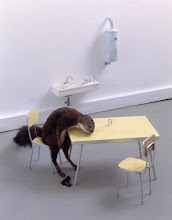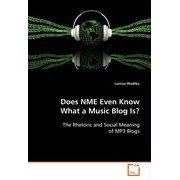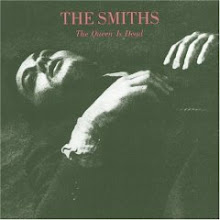
Bootlegs are extraordinary things - they can be a sign of subcultural capital, a souvenir from a gig you were at, or in many cases, the only way you can ever get to experience a band/artist in their prime. They're traditionally supposed to exist outside the official music industry and economy, hence the term bootleg, passed along between fans, acting as a currency of sorts. Of course some people end up making rather official-looking bootleg records and CDs and then selling them, and these bootlegs can become just as treasured and rare as others. I, myself, own most of my bootlegs via digital files transferred to disc, and I'm incredibly thankful that so many people post live gigs for free download, even if they're sometimes difficult to find. So as much as I still wish I could have seen The Smiths live or the Manics when Richey was still a part of the band, at least I can gain a little insight into what it would have been like to be there through the dozens of bootlegs I've amassed. To add to my few "official" bootlegs, I've now got David Bowie's 1972 gig in Santa Monica, which was re-released a few weeks ago, and I'm quite pleased I have it despite the fact it's clearly one of those re-release money grab situations. While I thankfully did get to see Bowie live once during his Reality tour (third row seats, for which I'm particularly grateful), I obviously would have loved to see him during his Ziggy Stardust days, and this bootleg puts me smack back into that time.
This box set is aesthetically very pleasing and includes all those fun extras that fans like going through in addition to liner notes - exclusive photos from RCA, the concert review featured in the LA Times, and the liner notes booklet itself. Robert Hilburn. who wrote the review in the LA Times, provides some fantastic visuals for you as you listen to the disc and imagine being there:
Bowie, with a background in mime, has enormous stage control and is able to accomplish more with the mere movement of his eyes than most performers in rock can do with a whole series of exaggerated movements. His body is so disciplined that Bowie can create the tension of a wild animal, a tiger or panther as he prowls the stage, controlling the pace and direction of the show as he moves.
In addition, to the beautiful presentation, the performance itself is just brilliant in spite of mistakes and screeches of feedback. Bowie's theatricality and charm is tangible as he works his way through hits from Ziggy Stardust, Hunky Dory, Space Oddity, The Man Who Sold the World, and even The Jean Genie from the forthcoming Aladdin Sane. The setlist is also representative of the impressive body of work that Bowie had already created by that time - there aren't any songs from bad or non-descript albums that you inevitably contend with at Bowie shows now (I don't care how many punters want to hear Modern Love, David, you don't need to sing it anymore - replace it with Letter to Hermione).
There are many places on this bootleg that just transport me back to an excitement I will never get to experience firsthand: the rumbling bass building and building in the opening of Changes; the mesmerizing lonely drumbeat in Five Years echoing throughout the venue like an apocalyptic tribal call; the absolutely blistering Mick Ronson guitar solos in The Width of a Circle, Moonage Daydream, Waiting For the Man, and Sufragette City; Bowie asking in his camp voice for "pliers or a strong hand" as he prepares for the acoustic break, including a performance of Space Oddity in which he drones his own special effects and his voice just soars flawlessly; the haunting and emotional cover of Jacques Brel's My Death that makes my heart flutter; the frenetic, wild performance of one my favourite Bowie songs, Queen Bitch; and the poignant, appropriate finale of Rock 'n Roll Suicide where Bowie rasps "Gimme your hands" over and over, and I want to reach out to the stereo.
Overall, the gig was one of those perfect ones, where it was obvious David Bowie was completely in his element and at one of the several peaks of his career, still at the cusp of the most productive decade of his life. As much as I wish I had paid my $5.50 at the Santa Monica Civic Auditorium on October 20, 1972, I must make do with this historical recording of when David Bowie truly was otherworldly.





















































2 comments:
Fantastic album - I have had the bootleg for many years and I was fortunate enough to see pretty much the same set in Manchester when he toured the UK with the Spiders in 1973 - the same tour which saw him kill off Ziggy at the Hammersmith Odeon - a golden age and a memory I shall never forget.
iaskedforwonder
Blu Ray Converter
Convert Blu Ray Mac
Convert Blu Ray to AVI
Convert Blu Ray to DivX
Convert Blu Ray to MKV
Convert Blu Ray to MOV
Convert Blu Ray to MP4
Convert Blu Ray to MPEG
Convert Blu Ray to MPEG2
Convert Blu Ray to MPEG4
Convert Blu Ray to VOB
Convert Blu Ray to WMV
Convert Blu Ray to Xvid
Convert Blu Ray to HD
Convert Blu Ray to HD WMV
Convert Blu Ray to iPod
Convert Blu Ray to PS3
Convert Blu Ray to PSP
Convert Blu Ray to Xbox360
Post a Comment